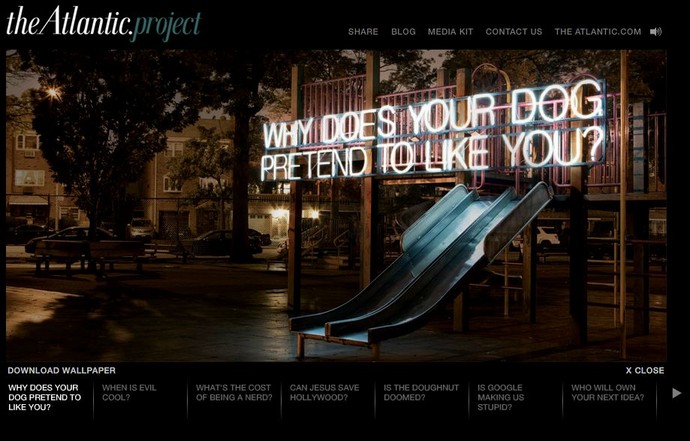Examining Models
MULTIMODAL PROJECT
theatlantic.com, Think.Again
This video comes from The Atlantic magazine’s unique online project called "Think.Again." The thesis of this project, which features related articles, videos, and images, is "There are too many rote answers and not enough good questions." "Why does your dog pretend to like you?" is just one of the questions generated by the project. Other questions include: What’s the cost of being a nerd?; Who will own your next idea?; and When is evil cool? Watch this video, and then explore the connected articles online.

Watch this video, from Atlantic Media Company.
Reading the Genre